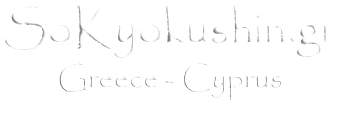Sosai Masutatsu Oyama, The Founder of Kyokushin Karate
Sosai (Great Master) Masutatsu Oyama was born in Korea in 1923 and became the founder of Japan’s most renowned — and the world’s most widespread — style of karate. From the age of 9, Mas Oyama learned Chinese Kempo in Manchuria and by the time he was teenager, he started practicing Judo and boxing. Finally it led him to the practice of Okinawan karate, which ultimately served as the springboard for the creation of his own style, Kyokushin, or “The Ultimate Truth.” By the time Mas Oyama was 20, he had received his 4th dan in Okinawan karate and, though a tireless study,eventually attained a 4th dan in Judo as well.
Among Mas Oyama’s many accomplishments, he is perhaps best known for introducing tameshiwari or “stone breaking” into the practice of modern karate. Mas Oyama reasoned that through hard training he could condition his hands to be as powerful as a hammer. Since one could break stones with a hammer, he began the practice of learning how to break boards, bricks and stones with his bare hands. This incredible power he translated then, directly into his theory of fighting karate, reasoning that if he could break stones, human bones would break beneath his blows as well. Perhaps his greatest contribution to Japanese karate, was the introduction and popularization of full-contact fighting karate. By the time he won Japan’s largest tournament sponsored by Okinawa’s Shotokan karate, he was often penalized for fighting too hard, resulting in frequent injuries to his opponents. It was this experience, perhaps above all other influences, that led to his creation of Kyokushin karate. After all, MasOyama believed, karate is a fighting art: Without taking it to its extreme by practicing to break the body of one’s opponent (for application during real life and death struggle), one could never realize the true spiritual potential of karate.
Frustrated by society’s opposition to his gathering strength, Mas Oyama at the age of 23, retreated to a remote spot in the mountains with the ambition of training more hours per day than he slept for three years. During this time he practiced by striking the few mountain trees around his cabin with his bare fists until those trees withered and died. He pressed twice his body weight 500 times per day, meditated under icy waterfalls, and fought in the night with the demons of bitter cold and isolation. Upon emerging from mountain training, it is said that Mas Oyama struck a telephone pole and left a clean imprint of his fist in the treated wood.
downloadAt the age of 27, convinced that he could not find another fighter in Japan who could match his power and skill, Mas Oyama began his famous battles with bulls to prove his strength and make the world realize the true power of his karate. In one famous bout in front of a movie camera, he battled an angry bull on a beach for 45 minutes, both he and the bull refusing to be beaten. Finally the bull tired, and Mas Oyama sliced one of his horns off with his shuto, or “knife-hand strike.”
Mas Oyama opened his first dojo in Ikebukuro, Tokyo at the age of 30, and called it “Oyama Dojo.” It was here that he took all that he had learned from the various styles that he’d practiced through the years, combined them with what he’d learned during the many thousands of hours of self-training and full-contact fighting, and created a new style of karate, which he called Kyokushin. In 1964, a new dojo in Ikebukuro became the world headquarters of the International Karate Organization, Kyokushinkaikan, which had over 12 million members in 133 countries at the time of his death.
Mas Oyama died of lung cancer in April of 1994, leaving to the world a legacy of the world’s strongest karate.
Karate is not a game.
It is not a sport.
It is not even a system of self-defense.
Karate is half physical exercise and half spiritual. The karateka who has given the necessary years of exercise and meditation is a tranquil person. He is unafraid. He can even be calm in a burning building.
 Reviewed by Fyli News
on
Αυγούστου 09, 2022
Rating:
Reviewed by Fyli News
on
Αυγούστου 09, 2022
Rating:










